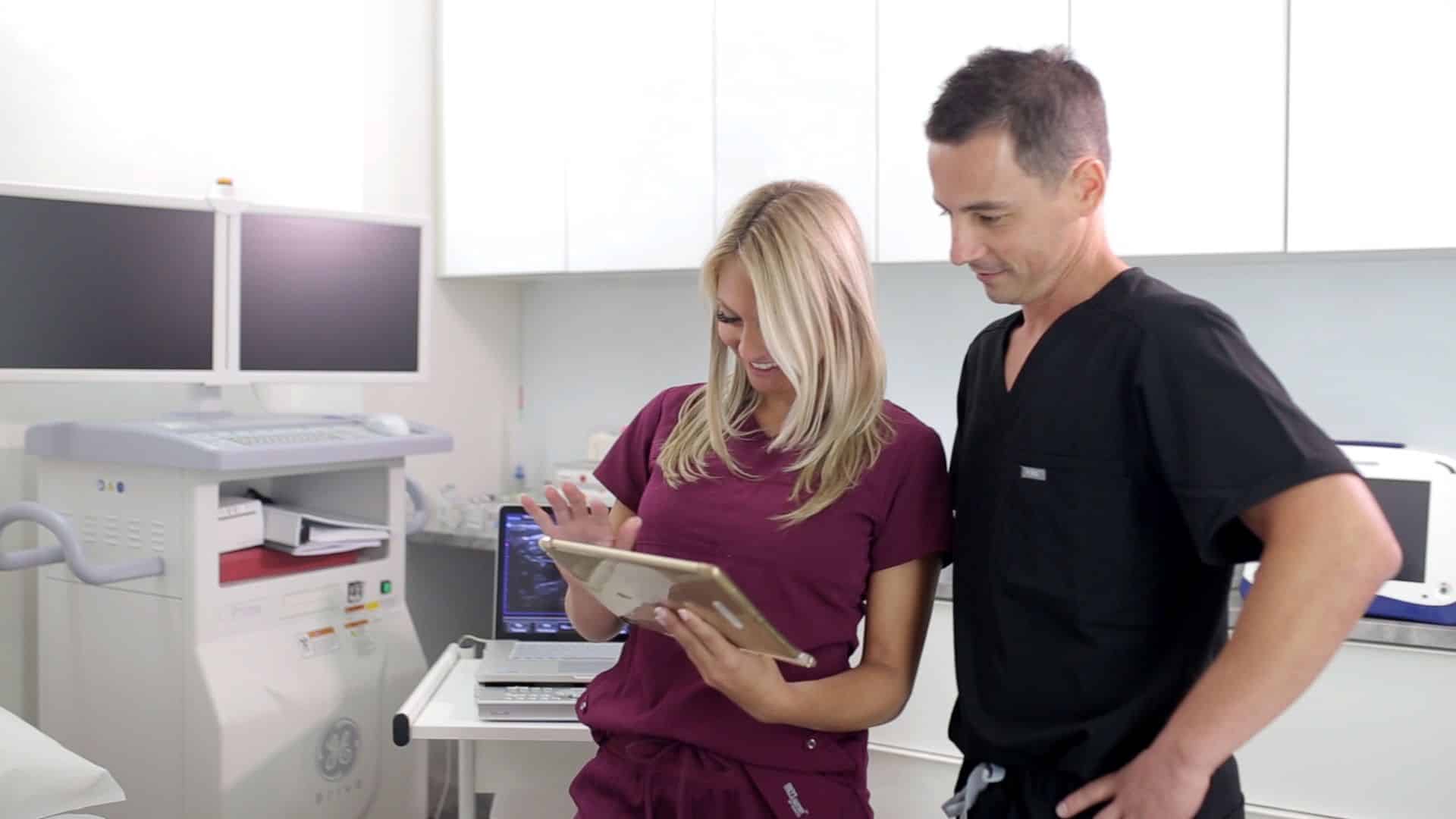Radiculopathy – 6 Questions, Answered by Renowned Back Pain Dr Near Me in Paramus
October 25, 2021
Radiculopathy is the medical term that describes a pinched nerve in the spinal region. Wear and tear, excessive lifting, injury, or anything that causes pressure on the nerve root (the portion of the spinal nerve that exits the spinal cord) can lead to a pinched nerve.
When something puts pressure on the nerve root, it can easily become inflamed, leading to back pain and – depending on which region of the spine is affected – leg, hip, hand, or neck discomfort. Luckily, these symptoms can be relieved with minimally invasive treatment, but it is recommended that you pursue immediate therapy to avoid irreversible nerve damage.

If you are curious to learn more about radiculopathy and what you can do to alleviate the symptoms, you have come to the right place. Dr Laura Lombardi, a board-certified back pain Dr near me in Paramus is here to answer a few questions about pinched nerves and the most effective pain management options available.
1. What are the main causes of a pinched nerve?
Radiculopathy occurs when the tissue around the nerve puts pressure on it. One of the most prevalent reasons is a herniated spinal disc, which causes lumbar radiculopathy. This starts with the outer rim of the disc deteriorating or tearing, causing the nucleus to be pushed outward and placing pressure on a spinal nerve.

Bone spurs, which are defined as excess bone growth on a segment of the spine, can also cause radiculopathy. Bone spurs can occur as a result of trauma or osteoarthritis. The spurs can make the spine stiff and compress the nerve roots, leading to discomfort.
2. Which spinal region does radiculopathy affect?
Because nerves exit the spinal cord at various places along the spine, radiculopathy can affect any region of the spine. This is why pain levels and symptoms can vary from patient to patient.
Pain doctors classify radiculopathy by the region it affects:
Lumbar radiculopathy
The most common kind of radiculopathy is lumbar radiculopathy, which occurs when a nerve in the lower back is pinched. Common reasons include injuries or ruptured discs, which can put pressure on the nerves.
Thoracic radiculopathy
When a nerve root in the upper back is pinched, the condition is known as thoracic radiculopathy. This is a rare occurrence, as nerves in the thoracic area are difficult to compress. When this happens, though, it creates thoracic and chest pain.
Cervical radiculopathy
A pinched nerve root in the neck region causes cervical radiculopathy. A burning, numbness, or tingling feeling in one of your shoulders, arms, or hands are common symptoms.
3. Can the risks of radiculopathy increase with age?
Radiculopathy, like many other back diseases, is more prone to develop as you become older. After the age of 30, the chances of developing radiculopathy increase significantly, and, after the age of 50, the risks increase even more.
Conditions like osteoarthritis and rheumatoid arthritis, as well as specific lifestyle decisions, including poor posture, repeated motions, and inadequate mobility, can all raise the risk of radiculopathy. Radiculopathy is also more likely to occur during pregnancy.
4. How is radiculopathy diagnosed?
When a patient with radiculopathy symptoms goes to the doctor for medical advice, it usually starts with a discussion about the patient’s medical history and continues with a physical examination. Following that, the doctor may request more precise tests for a more accurate diagnosis. These can include the following:
- X-rays to check for bone alignment issues.
- MRI scans to look at the patient’s soft tissue, spinal cord, and nerve roots;
- CT scans to check for any bone spurs.
- A nerve conduction study, which assesses a nerve’s capacity to transmit electrical impulses.
5. Which are the most effective treatment options?
After the evaluation, your doctor may offer a variety of treatments, ranging from over-the-counter medications to minimally invasive procedures like steroid injections, depending on how evolved the condition is. Rarely, the doctor may also recommend surgical procedures.
The following are some of the most common radiculopathy treatments:
- A few days of rest: Your doctor may prescribe short-term bed rest and recommend the use of a brace, splint, or soft neck collar to immobilize the problematic region and allow you to sleep better.
- Medication: a variety of medicine, such as anti-inflammatory tablets, analgesics, muscle relaxants, and oral corticosteroids, can be quite successful in relieving radiculopathy pain.
- Minimally invasive therapy: steroid injections and other minimally invasive procedures that are used to treat sciatica can also assist with radiculopathy symptoms.
6. What can I do to prevent radiculopathy?
If you want to prevent radiculopathy, you need to make some changes in your daily habits. Try to maintain a good posture and keep an eye on your weight, to avoid putting too much pressure on the spine and irritating a nerve.
When lifting heavy objects, avoid bending in the middle and don’t lift with your back. Instead, bend at the knees, keep your back straight, and lift using your legs rather than your back.
Take frequent breaks to relax your back if your profession requires doing repetitive tasks or being in a position that is uncomfortable for your spine.
It also helps if you are physically active and follow a consistent training schedule. To avoid problems, make sure to discuss any fitness plan with your doctor, especially if you’ve had back discomfort in the past.
Luckily, with proper therapy, the majority of patients suffering from radiculopathy will be able to get rid of the discomfort. Radiculopathy normally goes away with a little medical attention, and even in the few situations when surgery is required, patients recover entirely and are able to live pain-free following the treatment.
If you’re looking for a back pain expert in Paramus, NJ, consider contacting our medical center to schedule an appointment with one of our specialists. The staff, led by a Harvard-trained medical director, is ready to help you find proper treatment and get back to your pain-free life. Schedule an appointment with Dr Laura Lombardi, one of the best back pain dr near me in Paramus at our Paramus clinic on Route 17, near the Paramus Park Mall.
Book a Consultation
Scheduling a consultation with one of our pain treatment specialists is one of the best ways to determine the proper solution for pain relief.
Meet Our Team of Back Pain Specialists
All of our Pain Doctors in New Jersey are Harvard Trained and Board Certified in Pain Management

Back Pain Doctor Clifton & West Orange NJ
Dr. George Hanna
Dr. Hanna is a Harvard Trained back specialist in New Jersey and New York. He serves as Medical Director of Pain Management.

Back Pain Doctor Clifton & West Orange NJ
Dr. Laura Lombardi
Dr. Lombardi is a Harvard Trained back pain treatment doctor, currently seeing patients in Clifton and West Orange, New Jersey.

Back Pain Doctor Clifton & West Orange NJ
Dr. Shane Volney
Dr. Volney is a Harvard Trained back treatment doctor seeing patients in the NJ areas of Clifton & West Orange, and in NYC.

Back Pain Doctor Clifton & West Orange NJ
Dr. Michael Nguyen
Dr. Nguyen is Harvard Trained and Board Certified in Pain Management. His pain center accepts major medical insurances and Medicare.

Dr. George Hanna

Dr. Laura Lombardi
Dr. Lombardi is a Harvard Trained back pain treatment doctor, currently seeing patients in Clifton and West Orange, and Paramus New Jersey.

Dr. Shane Volney
Dr. Volney is a Harvard Trained back treatment doctor seeing patients in the NJ areas of Clifton & West Orange, and in NYC.

Dr. Michael Nguyen
Dr. Nguyen is Harvard Trained and Board Certified in Pain Management. His pain center accepts major medical insurances and Medicare.
